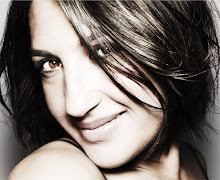
Following the session we had last week on Kolb’s Learning Cycle I am going to attempt to write four examples which will hopefully fit into the four categories outlined in the Cycle; Concrete Experience, Reflective Observation, Active Experimentation and Abstract Conceptualisation. Here goes...
Concrete Experience
After completing my A Levels in Nottingham and taking 2 years out to work at the BBC I decided it was time to get a degree. I knew I wanted to do my degree in Performing Arts, or if possible in Acting. I applied to a number of different universities and performing art colleges and waited to see if I would be given an interview. Quite late on into the year I received a letter from Chickenshed, one of the places I had applied for, asking me to come to an open day and for an interview. I spent the day there and watched a production of Vanity Fair that was being shown in the theatre at the time. I was amazed at the professionalism of the performance and was excited at the possibility of being able to be part of that. I wasn’t sure I was quite ready to leave Nottingham as I had a lot of ties there and had started to feel as though I had just found a good network of support there, but this course looked good and so I had a dilemma on my hands. Two months later my status on UCAS changed from conditional to unconditional and I realised how I was secretly hoping to get in and how excited I was about getting the place...so I packed my bags, left Nottingham and moved to London!
Reflective Observation
Having been in London now for two years and having just completed my Foundation Degree I can look back and reflect on whether my decision to move was the right one. In the two years I’ve been here I have been part of 7 professional theatre productions, performed in venues such as the Hard Rock Cafe and The Guildhall and learnt sign language! That alone is more than I did in the six years I was in Nottingham. I think that the decision to move was the right one as it has opened me up to experiences I would never have had if I had stayed where I was. Not all of it has been positive, I have struggled to build a good group of friends that I know I can rely on at the drop of the hat, with the exception to one or two people. This has made it hard and quite lonely at times and I still get homesick every now and then, but I haven’t lost my friends in Nottingham and I get to see them often. So I guess you could say I get the best of both worlds...the glitz and glamour that London brings, and the comfort and support from Nottingham.
Abstract Learning
Doing my Foundation at Chickenshed has opened me up to an entirely new type of theatre that previously I had very little knowledge of- Inclusive Theatre. I have learnt that unlike what most drama schools will tell you, it isn’t about being the best at what you do according to a bunch of people judging you from behind a desk, it’s about having the passion to do what you want to do and if you have that passion then who’s to say you can’t do. The director at Chickenshed often says to us that by thinking like this it doesn’t mean that we’re compromising quality because she expects nothing less than the best that we can offer. Being able to think this way, and being able to strive off of the passion and love that I have for acting has given me the confidence to go for auditions I wouldn’t normally go for because at the end of the day what more can I offer than a passion for acting and my own personal best when I do it.
Active Experimentation
Taking everything that Chickenshed has taught me about inclusion I can now take this and apply it to everything in life. I can look at the things that I do and look at how this may affect other people and about having a greater respect for different individuals’ situations. This can be applied in workshops where there may be a group of participants with a range of different physical abilities and adjusting the language you use in order to accommodate and make everyone feel comfortable with what you are asking them to do. For example, instead of saying “Ok, everyone stand up,” this could be changed to “Everyone rise to your working levels.” This simple change of language opens up the instruction to everyone in the group by being considerate of what people are physically capable of doing.









